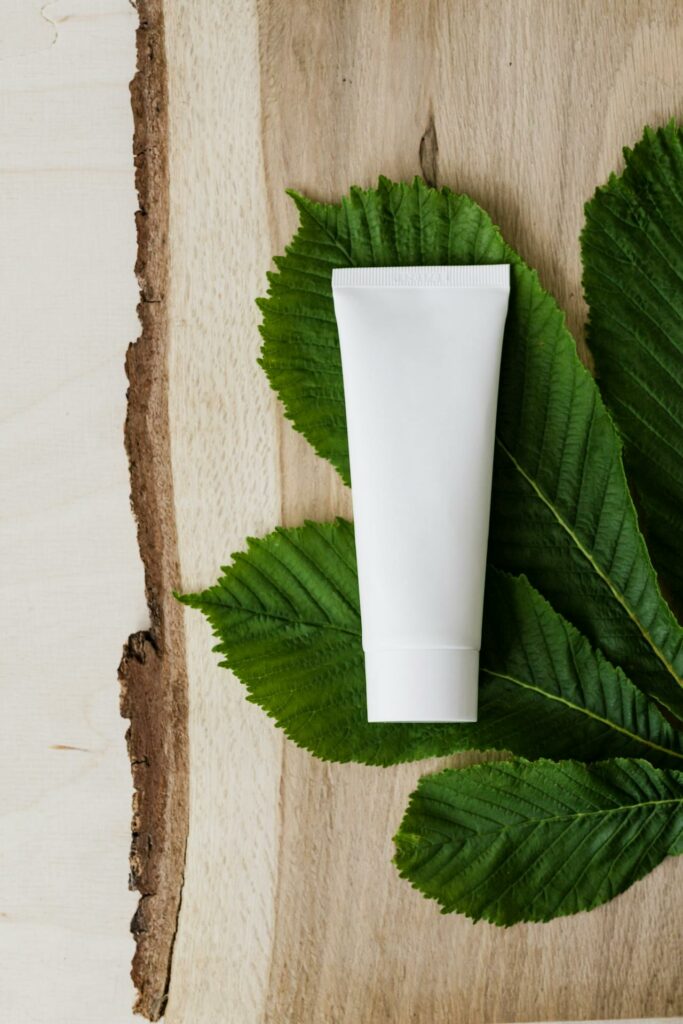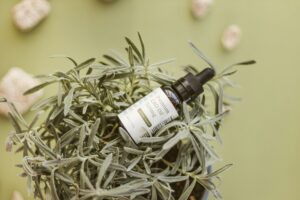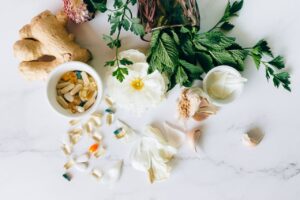You might be surprised to learn that herbal shampoos really do work.

You might be surprised to learn that herbal shampoos really do work.
Over the past ten years, there has been a big shift away from hair care products that contain chemicals and toward natural alternatives made from herbs. Herbal shampoos, for example, have been getting more and more popular in the last few years. These shampoos promise to clean the scalp, nourish the hair, and treat problems like dandruff and hair loss without causing any bad or unnecessary side effects. They are marketed as safe, good for the environment, and effective. The question that still needs to be answered is whether or not natural herbal shampoos really work or if they are just another trend in the beauty industry.
Getting to know herbal shampoos
Herbal shampoos are hair-cleansing products that are made from plants instead of chemicals that are made in a lab. They prefer to use extracts from herbs, flowers, fruits, and natural oils instead of harsh sulfates, parabens, and silicones in their products. Aloe vera, neem, hibiscus, amla, reetha (soapnut), shikakai, and bhringraj are common ingredients that are used to give hair nutrition, strength, and shine.
What Makes These Different from Regular Shampoos
Traditional shampoos are mostly about making lather and getting rid of oil. Herbal shampoos, on the other hand, are meant to bring back the natural oils in the scalp and improve the health of the hair over time. They don’t have any synthetic foaming agents in them, so they don’t make as much foam as other products. However, they are gentler and better for you. Regular shampoos might make hair softer quickly because they have silicones in them, but herbal shampoos will slowly make hair healthier from the roots up.
Important Ingredients That Can Be Found in Herbal Shampoos
Each plant used in herbal shampoos has its own set of benefits. Aloe vera soothes and hydrates the scalp, neem cuts down on dandruff and irritation, hibiscus strengthens roots, and amla helps hair grow. These all come from the same plant. Reetha and shikakai are both natural cleansers that get rid of dirt and oil without taking away the moisture that the skin needs to work properly. Using these herbs together on a regular basis not only cleans the hair but also makes it easier to keep it healthy.
What the Research Says About Herbal Hair Treatments
Scientific research backs up the use of herbal shampoos, even though they are often marketed as traditional medicines. Many herbs used in shampoos have antibacterial, antifungal, and antioxidant properties that help keep the scalp healthy. Neem, for example, has been shown to work against the fungi that cause dandruff, and amla is full of vitamin C, which helps make hair follicles stronger. Studies have shown that both of these benefits are real. Also, reetha and shikakai’s natural cleaning properties have been shown to get rid of buildup without irritating the scalp.
There are many benefits to using herbal shampoos.
People who switch to herbal shampoos often find that their scalp irritation goes down, their hair becomes stronger, and their dryness goes down over time. Herbal shampoos are great for people with sensitive scalps because they don’t have any harsh detergents in them. The hair follicles get more blood flow, which could make the hair grow faster and thicker. People often say that their hair becomes shinier, softer, and lighter after using the product regularly because it doesn’t leave behind any chemical residues that weigh it down.
Herbal shampoos might not be the best choice for everyone.
Herbal shampoos might not work as quickly as chemical shampoos, even though they are usually safe. Some people find that their hair feels rough or dry in the first few weeks after they switch. This is especially true for people whose hair is used to shampoos that have silicone in them. Also, herbal shampoos may not always work as well on very oily scalps, which means that the hair may need to be washed more often.
What Do Herbal Shampoos Do to Help Hair Grow?
One of the most common things people say about herbal shampoos is that they make hair grow faster. Herbal shampoos may make the scalp a better place, which can help hair grow stronger and thicker. No shampoo can make hair grow faster, but herbal shampoos can make the scalp healthier. There is no doubt that herbal shampoos can help hair grow better over time. They do this by getting rid of dandruff, increasing blood flow, and lowering the risk of breakage.
Herbal shampoos can help with dandruff and other problems with the scalp.
Herbal shampoos are especially good for getting rid of dandruff and itchy scalp. Neem, tea tree, and rosemary are just a few of the well-known substances that can help fight fungal infections and reduce inflammation. Aloe vera and hibiscus are great for people with sensitive skin because they help reduce inflammation. Herbal shampoos are less likely to make your hair dry or flaky if you use them regularly, unlike shampoos that use chemicals to get rid of dandruff.
Is it okay to use herbal shampoos once a month?
Herbal shampoos are usually safe to use every day because they are gentle and don’t have any harsh chemicals in them. Herbal shampoos, on the other hand, keep the scalp’s moisture balance, while regular shampoos can strip the scalp of its natural oils if used too often. But it’s important to choose a formulation that works for your hair type, whether it’s oily, dry, or a mix of the two, to avoid an imbalance.
Homemade shampoos vs. store-bought shampoos
Some people make their own herbal shampoos with three herbs: reetha, shikakai, and hibiscus. Making homemade versions can take a lot of time and work, but they can be very effective. On the other hand, herbal shampoos that you buy at the store are not only easy to use, but they also often have extra essential oils and stabilizers added to them to make them last longer. Your lifestyle, the ingredients you have on hand, and your own personal choice will all play a role in what you choose between the two.
Things to Think About Before Switching to Herbal Shampoos
If you’re thinking about switching from your usual shampoo to a herbal one, keep in mind that it might take some time to get used to it. Your hair may feel different at first because there are no chemicals or silicone coating. It will get used to the new environment. Consistency is the key to success, and it may take weeks before you see the benefits. It is also important to read the labels carefully because not all shampoos that say they are “herbal” are made entirely of natural ingredients. Some may still have some synthetic ingredients in them.
Conclusion: Do Herbal Shampoos Actually Work?
The effectiveness of herbal shampoos depends on what people expect from them. They might not make your hair shiny or soft right away like chemical shampoos do, but they work slowly and naturally to make your hair healthier over time. If you have dandruff, an itchy scalp, or hair loss, using herbal shampoos might be a safe and long-lasting solution. If you use herbal shampoos regularly and choose the right one, they will definitely make your hair healthier, stronger, and more balanced.
Herbal shampoos are more than just a trend; they are a return to natural and eco-friendly ways to take care of your hair. Even though it might take longer for them to work, the long-term benefits are much greater than the short-term appeal of chemical-based solutions. Herbal shampoos are worth switching to if you want hair that is stronger, healthier, and more resilient without putting harsh chemicals on your scalp.







